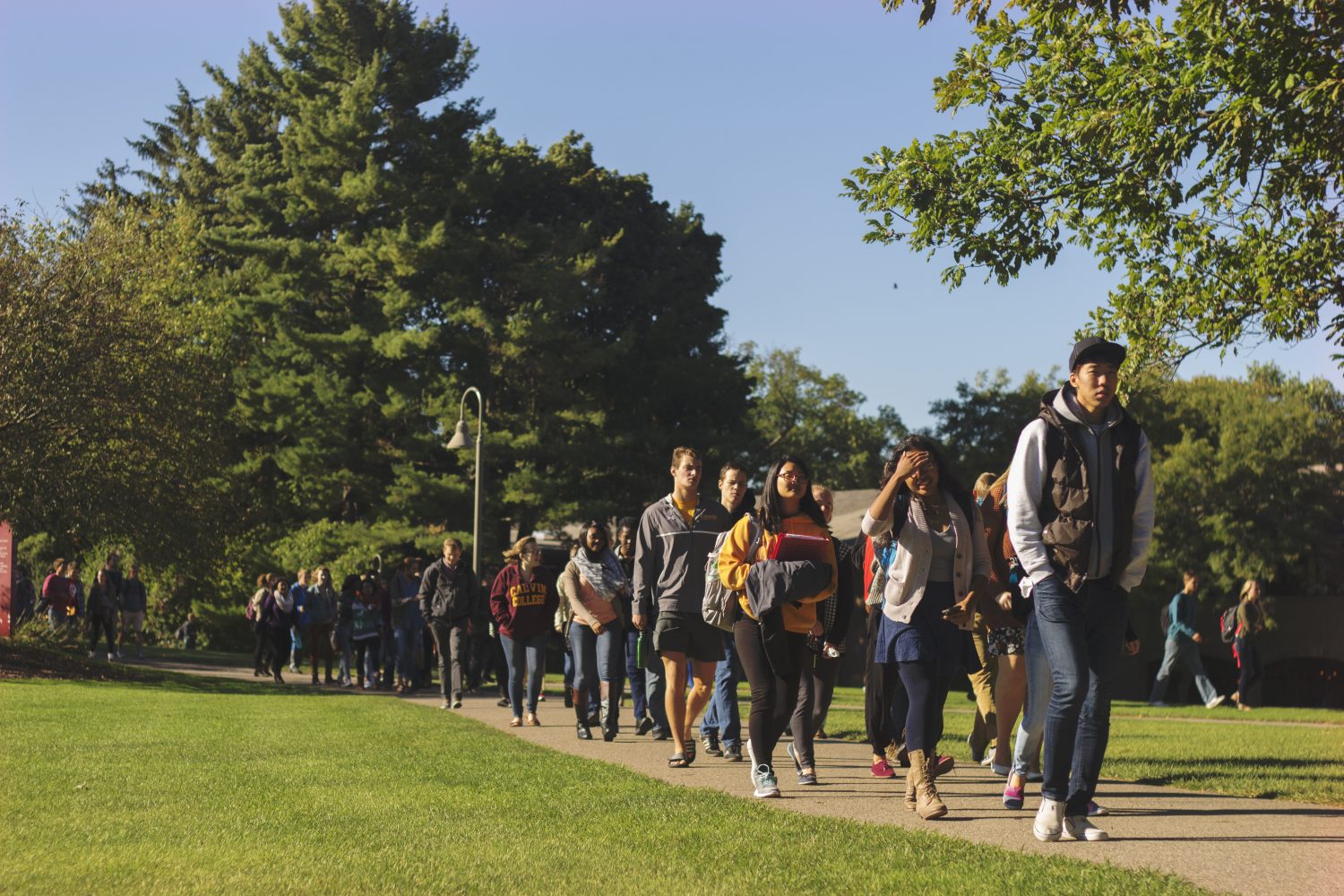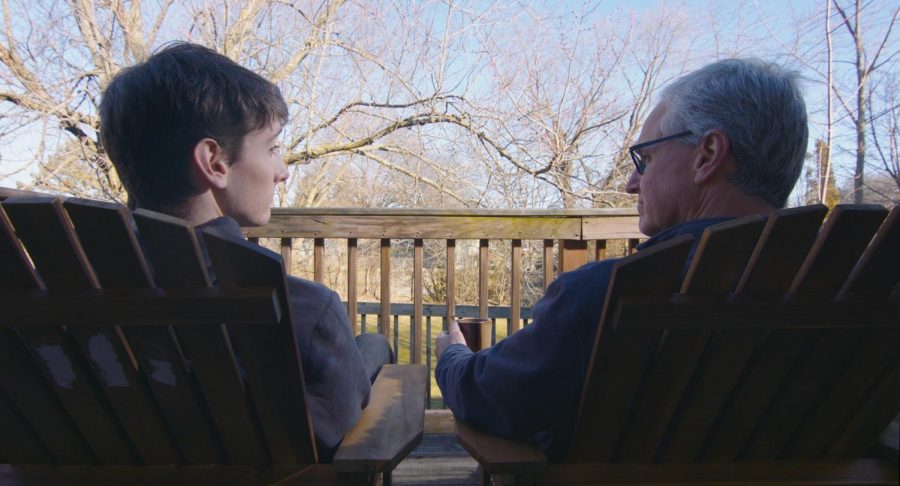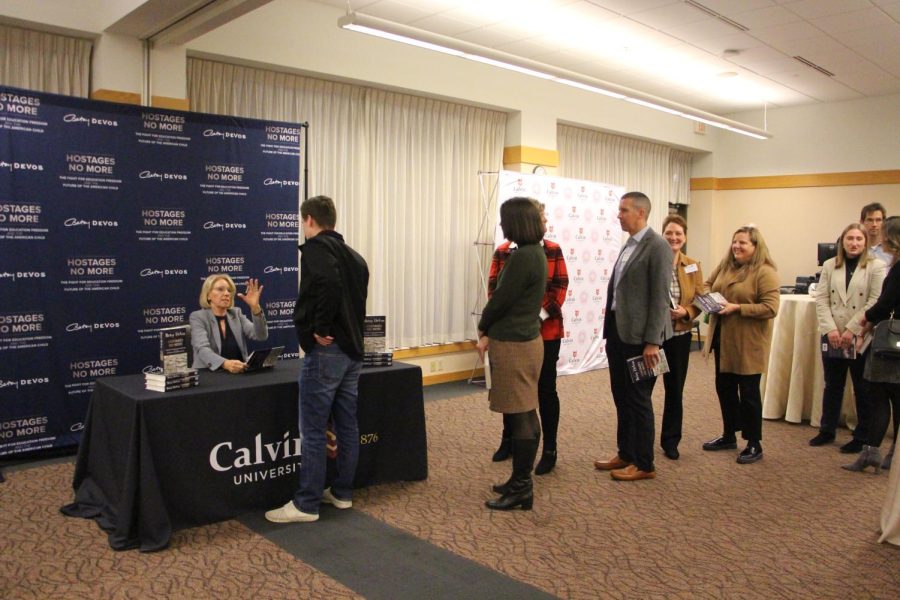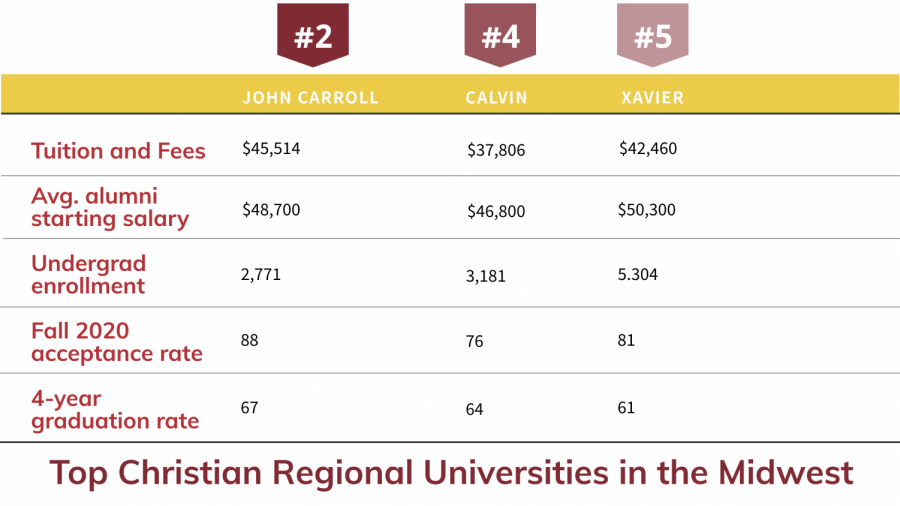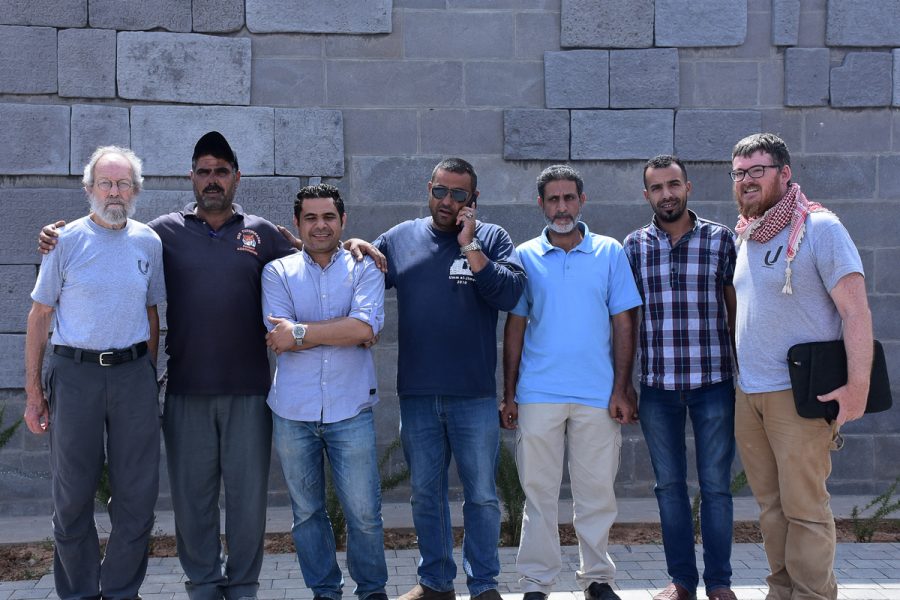Following an email announcement on Friday, September 25, of recommendations to eliminate six academic programs and five faculty members in order to cut costs in the academic division, many students and alumni have challenged Calvin’s commitment to the liberal arts.
The programs included in the announcement are the architecture minor, the art history major, the German major, the Latin major, the Greek major and the theater major. Except for architecture, minors in all these fields, as well as the Calvin Theatre Company, will be retained.
After receiving the email, students and alumni reacted almost immediately. Many were concerned with the loss of the theater major and a perceived threat to the humanities. Letters directed to the provost and administration went viral on Facebook, and several social media hashtags began trending, including #defendtheliberalarts, #wearecalvintheatre, #mycalvinstory and #whataboutyourmajor.
Though six programs have been recommended for elimination, none garnered more defenders than the theater department. Students voiced concerns that removing two faculty members from the theater department was too much. As one alumni commented, “We’re losing two of our three faculty members. Who do you think directs the productions?”
Students whose majors could soon be disappearing were also worried that the quality of their programs would be reduced after faculty positions were cut. Though Calvin remains contractually obligated to teach these programs to their completion, it remains to be seen how educational workloads will be spread among fewer faculty.
Student senate organized a forum on Tuesday, September 29, in which students were given the opportunity to ask questions of President Le Roy, Provost Brandsen and professor Kevin den Dulk, a member of the task force.
Because most of the proposed cuts were in the humanities, and in light of previous reductions to humanities programs like the voluntary buyouts offered to faculty in May, there has been a growing concern among students and alumni about Calvin’s commitment to teaching the liberal arts.
Some students saw these recommendations as the latest development in a long history of Calvin failing to adequately support the liberal arts, and some fear that further cuts will follow or that cutting programs would become a new “default” solution to financial problems.
Le Roy explained that, far from being a “default,” cutting programs is extremely painful and has been the college’s last resort: “It’s the last thing we’ve done, [because] it’s the hardest thing to do,” he said. “It’s why a lot of institutions in higher ed don’t do it, and it’s why a lot of [them] are in deep economic trouble now.”
Music professor Tim Steele, a member of the task force that made the recommendations, said that regardless of necessary downsizing, Calvin remains committed to giving students a well-rounded foundation in the humanities. “I think, in context, it will become clear that claims about ‘abandoning the liberal arts’ can’t be sustained,” he said. “But it is also clear that much needs to be done to attract more students to Calvin who want to major and minor in the liberal arts.”
At the forum, Le Roy also explained that Calvin’s commitment to the liberal arts remains evident in the way it educates its students as a whole. He emphasized the difference between having an especially wide range of available programs and having an intentionally diverse core curriculum. “The liberal arts ideal has never been about the majors offered by a college,” he said, “rather it has always been about the discourses that are at the core of every student’s learning.”
According to Provost Cheryl Brandsen, Calvin is “doing more with less” by increasing class sizes while decreasing the number of sections offered. In fall 2015, the college has 262 full-time faculty, down 50 from 312 faculty in the fall of 2011. At the same time, the number of credit-hours taken by students has remained steady.
Brandsen also asked students and others to “be mindful of what we didn’t cut.” Calvin is still set apart from its competitors, Brandsen said, by a wide variety of language options and strong programs in music, the social sciences, English, mathematics and other disciplines.
But with the phrase “low student demand” being blamed so frequently, one student openly questioned whether that demand could be influenced.
Joy Christopher, a junior majoring in biochemistry, elicited resounding applause in Tuesday’s town hall with a question concerning Calvin’s support of “disciplines that may not be as celebrated by society as others.” She said incoming students might be more interested in traditionally under-enrolled programs if Calvin was more proactive in publicly promoting them.
“I think we should be trying to counter that shift of only valuing ‘practical’ things.”
“It’s very obvious that some disciplines are supported more than others,” she added. “I don’t think this is on purpose…I think we just need to be more intentional about supporting the programs that are less known or less celebrated.”
As the forum drew to a close, students expressed a desire to have their voices heard and opportunity for more question-and-answer time. Le Roy agreed to stay, and spoke with students individually for an hour and 15 minutes after the town hall had ended.
“I am deeply moved by our students’ passion for the liberal arts and their ability to articulate its purpose and place in their education,” he said afterward.
The recommendations are the result of a long and arduous process that began in 2012 to increase revenue, raise funds and reprioritize resources in order to make the school financially sustainable.
In January 2014, the planning and priorities committee published an initial prioritization document, part of which identified programs across campus which were “vulnerable” and in need of restructuring.
In April 2015, the provost selected nine faculty members to form a new academic prioritization task force (APTF). The task force included three representatives from each of Calvin’s academic divisions.
After years of restructuring, fundraising and cutting faculty and staff, the college still needed to cut $800,000 out of the academic budget in order to become financially stable by July 2017. The APTF was charged with finding this $800,000.
The APTF looked at programs from the original prioritization document and used measures such as FTIAC (first time in any college) student interest, declared majors or minors by Day 10, graduates coming out of the program, student-faculty ratios and a complicated efficiency metric to measure student demand.
“Numbers are the start of a conversation,” said Brandsen. “That’s how we identify who we’re talking about.” The APTF intended to ultimately base their decisions on measures of demand, quality, finances and opportunity.
Over the summer, the APTF split into groups and met with representatives from every department on the list and discussed the qualities, histories and future possibilities that were unique to each program.
“Much of the work of the task force was to dig into what these data could tell us about individual programs, to identify areas in which student demand, efficiency and program costs were out of alignment and to work with departmental representatives to understand what was going on,” said Steele.
Fellow APTF member Kevin den Dulk echoed this: “Numbers tell one story, but we wanted to get some narratives.”
After these discussions, the APTF reconvened to go over the data and came to a consensus. Their recommendations and rationale have been submitted to the provost, who will now send a final list to the planning and priorities committee, which the president chairs. The president will then take them to the board of trustees for final approval.
When asked what he would want students to know about the process, Steele emphasized that the task was taken seriously by every member of the APTF, and the most important task now is to “make sure students have what they need to complete their programs.”
“The news is grim, and the pain is real. But the work was necessary,” he said. “The circumstances that led to the college’s budget problems are in the past. Now we want to focus on sustained investment in the future.”
Assuming enrollment remains steady, Brandsen said, these cuts are the end of the prioritization process for the academic division. With these cuts, the academic division will have met their goal of $800,000 to remove from the budget. The next steps include a new visioning process of exploring how to further incorporate the programs and areas that have been hit by cuts.
The administration has expressed a commitment to “restructuring” and “re-investing” in programs that were cut, specifically in art programs. Finding new and better facilities to house programs, creating more synergy and involvement between similar programs, and finding a “compelling vision” to support the arts more fully have all been brought up as possibilities.
Le Roy stressed the need for more concrete plans in order to bring in the necessary funding to make restructuring possible. ”Donor’s don’t give to need,” he said, “they give to compelling vision.”
He added that part of that vision could mean a redesign of art spaces on campus. “Being in the basement of Spoelhof is not the way to grow a program and draw students to it,” he said, and later reiterated, “we’ve got to get the art department out of the basement.”
Brandsen acknowledged that a lack of a concrete proposals at the time of the cut announcements could understandably leave students feeling a bit uncertain.
”I know that you’re looking for a ‘compelling vision’ right now,” she said, “and we don’t have that.”
However, Brandsen said she hopes to begin the revisioning work by the end of the October, and already has some key players identified to assist in the process. Now that the college is on a trajectory to meets its debt payments and is done making recommendations for critical academic cuts, she said they can now begin to focus on rebuilding.
Steele also remains optimistic about Calvin’s future:
“There is amazing richness and vitality here. At the end of this process, I am more than ever convinced that Calvin is a great place to learn.”
Decisions regarding the finalization of recommended cuts are not projected to be finalized until next week at the earliest. Mandi Hutchins, a Calvin theater alumna, began a GoFundMe campaign in an attempt to “re-open discussion on the future of the theatre program at Calvin College.” The goal of the campaign is to raise $50,000 in five days. In its first nine hours, the campaign had received over $4,000.




